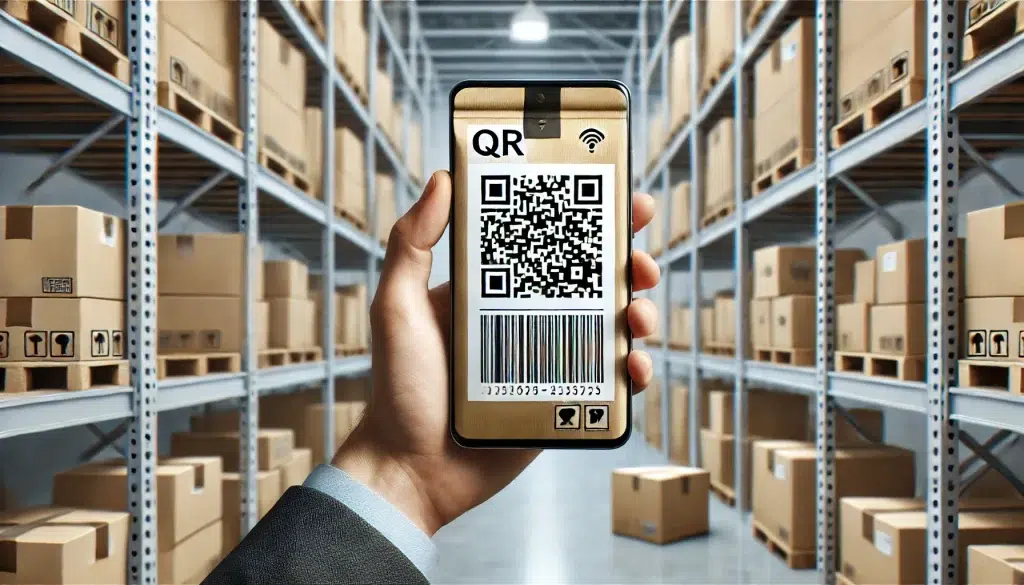Blockchain technology, originally developed for cryptocurrencies, offers innovative solutions to these problems. Blockchain is a decentralized and immutable digital ledger where information is stored in encrypted blocks linked together. This technology provides a high level of security, transparency, and trust, making it an ideal tool for e-commerce.
Blockchain in E-commerce: Strengthening Trust and Security in Online Retail


Challenges in E-commerce
1. Fraud:
- Credit card theft: Cybercriminals are constantly developing new ways to steal confidential information, leading to huge financial losses.
- Fake returns: Unscrupulous buyers can abuse the return policy, harming sellers.
- Counterfeit goods: Counterfeit products harm both buyers and brands, undermining trust in online stores.
2. Lack of Transparency:
- Fake reviews: Manipulation of reviews and ratings misleads buyers and makes it difficult to make informed purchasing decisions.
- Tracking difficulties: Lack of transparency in the supply chain creates risks of buying counterfeit or low-quality goods.
- Hidden fees: Some platforms may charge hidden fees, making it impossible to compare prices fairly.
3. Data Leaks:
- Hacking risks: Centralized databases with personal buyer information are an attractive target for hackers.

How Blockchain Solves These Problems
Blockchain offers several unique advantages that can solve these problems:
1. Security:
- Cryptographic protection: Data in the blockchain is encrypted and protected from unauthorized access.
- Decentralization: The absence of a single point of control makes the blockchain resistant to hacking and failures. Thanks to the distributed storage of data on multiple computers, even if one of them is compromised, the information remains safe.
2. Transparency:
- Immutability of data: Records in the blockchain cannot be changed or deleted, ensuring transparency and trust. This allows you to create a reliable accounting and control system where each transaction is tracked and verified.
- Supply chain tracking: Blockchain allows you to track each stage of a product’s life cycle, from production to sale. This guarantees the authenticity of goods and allows you to fight counterfeiting, increasing consumer confidence in online stores.
3. Smart contracts:
- Automation: Smart contracts are self-executing agreements that are executed automatically when certain conditions are met. This speeds up transactions, reduces risks, and increases trust between parties by eliminating the need for intermediaries and manual control. For example, a smart contract can automatically transfer payment to the seller after the buyer confirms receipt of the goods.

Examples of Blockchain Use in E-commerce
- IBM Food Trust: This platform uses blockchain to track food from farm to store, increasing transparency and safety in the food chain. Consumers can learn about the origin of products, their storage and transportation conditions, which increases confidence in the quality and safety of food.
- Provenance: This system allows you to track the origin of goods, confirming their authenticity and ethical production. This is especially important for luxury goods, where counterfeits are common, as well as for goods produced in accordance with the principles of sustainable development.
- OpenBazaar: This is a decentralized marketplace where buyers and sellers interact directly, without intermediaries, using blockchain to ensure the security and transparency of transactions. This reduces fees and gives sellers more control over their business.

Hive Group and Blockchain: Innovations for the Future of E-commerce
Hive Group, a startup striving to revolutionize e-commerce, recognizes the potential of blockchain to create secure and transparent online retail. The company is actively exploring the possibilities of integrating blockchain into its future products and services to offer customers advanced solutions based on the principles of trust and security.

Conclusion
Blockchain is not just a technology, it is a new approach to e-commerce based on the principles of security, transparency, and trust. The introduction of blockchain can be a decisive factor in the development of e-commerce, ensuring the protection of the interests of both buyers and sellers. Hive Group, being at the forefront of innovation, is ready to use blockchain to create a new generation of products and services that will make online shopping even more secure, transparent, and convenient.
Relevant Articles
Rest assured that we are always here to make your shopping fantasies come true!

AI
Responsible Use of AI in E-commerce: Ethical Considerations and Best Practices
Artificial intelligence (AI) is rapidly changing the e-commerce landscape, opening up new opportunities for businesses and consumers.

Cryptocurrencies
Cryptocurrencies and the Future of Online Payments: A Payment Revolution or Another Bubble?
Cryptocurrencies, such as Bitcoin and Ethereum, have become one of the most talked-about topics in the financial world.

Analytics
Living in the Future
Conventional profit optimization methods could cause your company to miss out on opportunities to grow.
